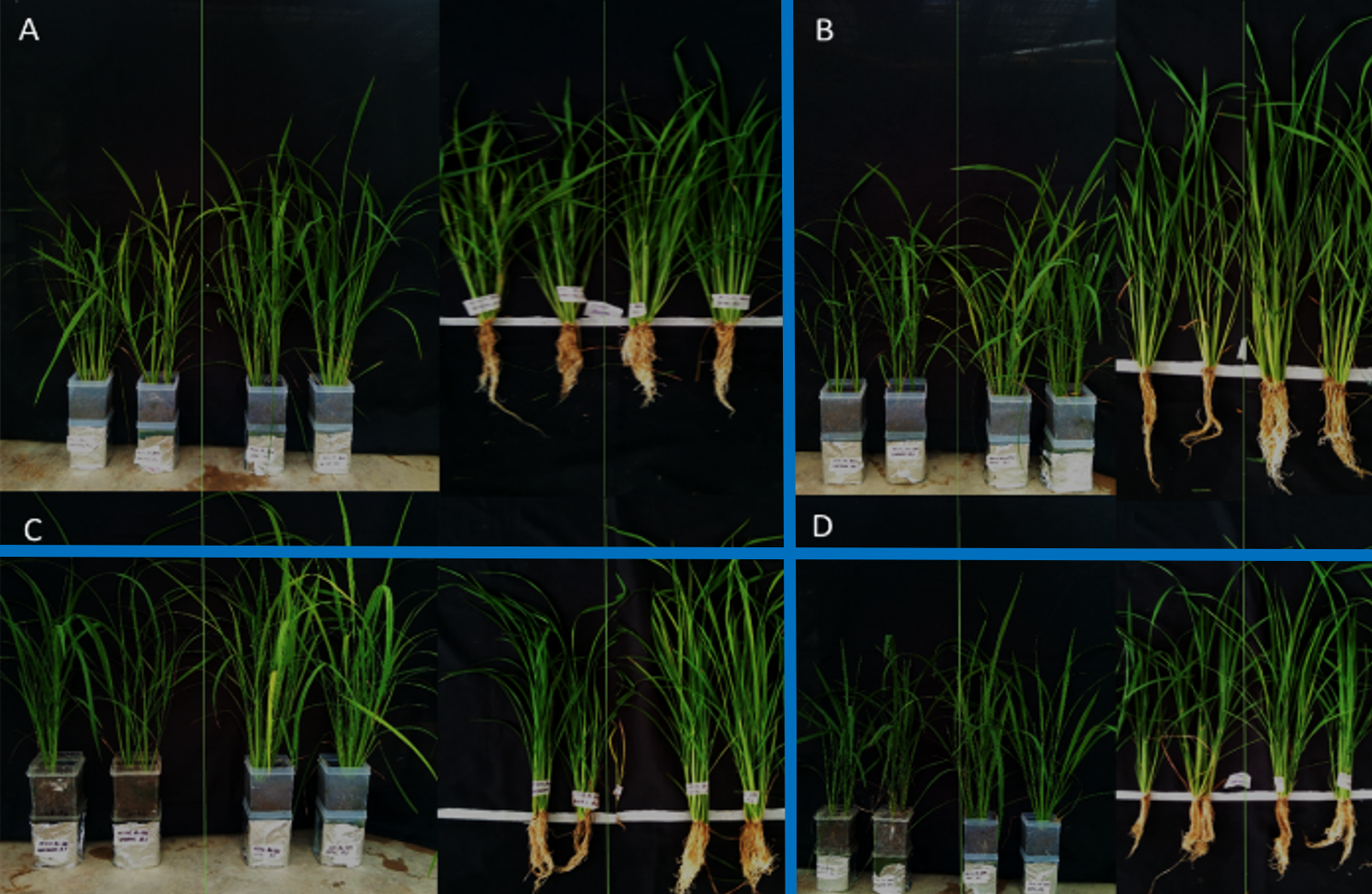VOLUME 13 NUMBER 2 (July to December 2020)

Philipp. Sci. Lett. 2020 13 (2) 124-129
available online: September 30, 2020
*Corresponding author
Email Address: jayveeacruz@gmail.com
Date received: January 06, 2020
Date revised: April 11, 2020
Date accepted: September 14, 2020
ARTICLE
Variations in growth responses of rice varieties to inoculation with plant growth-promoting actinomycete
Jayvee A. Cruz*1, Editha V. Evangelista1, Alexandra R. Agpaoa2, and Roel R. Suralta2
1Agronomy, Soils and Plant Physiology Division,
Philippine Rice Research Institute (PhilRice),
Science City of Muñoz, Nueva Ecija
2Crop Biotechnology Center, PhilRice, Science City of Muñoz,
Nueva Ecija
Philippine Rice Research Institute (PhilRice),
Science City of Muñoz, Nueva Ecija
2Crop Biotechnology Center, PhilRice, Science City of Muñoz,
Nueva Ecija
Poor overall crop growth during crop establishment when the soil is saturated negatively affects crop performance and adaptation to subsequent drought stress at later growth stages in upland rice-growing environments. Streptomyces mutabilis, an actinomycete and a gram-positive filamentous bacterium, can improve growth of rice. This study aimed to determine the potential of S. mutabilis in improving crop growth at an early vegetative stage in a rainfed upland condition by quantifying its effect on seed germination, seedling vigor, and root growth. Seeds of each of the irrigated lowland rice varieties such as NSIC Rc 122, NSIC Rc 222, NSIC Rc 240, and NSIC Rc 300 were presoaked in S. mutabilis inoculant solution and sown either in moist paper in a Petri dish in the laboratory or in potted water-saturated soil in the greenhouse. The seedling growth and vigor in the Petri dish were assessed at 3 to 7 days after sowing (DAS), while those in the pots at 14 to 28 DAS. In the Petri dish all varieties except NSIC Rc 300 showed greater shoot length, shoot dry weight, and seedling vigor with S. mutabilis inoculation relative to their uninoculated counterparts. In the potted water-saturated soil, by contrast, only NSIC Rc 122 and Rc 222 showed greater shoot and root dry weights with S. mutabilis inoculation relative to their uninoculated counterparts. Under S. mutabilis inoculation, NSIC Rc 300 had less growth than the other three varieties in both Petri dish and potted water-saturated soil possibly due to rice-actinomycete symbiosis. The results indicate that the response to S. mutabilis inoculation was variety dependent, and thus this observed genetic variations in response to inoculation can be utilized in breeding. Further studies under a moisture condition controlled by polyethylene glycol (PEG) in a Petri dish and under a different magnitude of upland soil moisture conditions are needed to validate the effect on growth performance as well as yield response. Also, the symbiotic relationship between the rice variety and actinomycete inoculations needs to be further explored.
© 2026 SciEnggJ
Philippine-American Academy of Science and Engineering